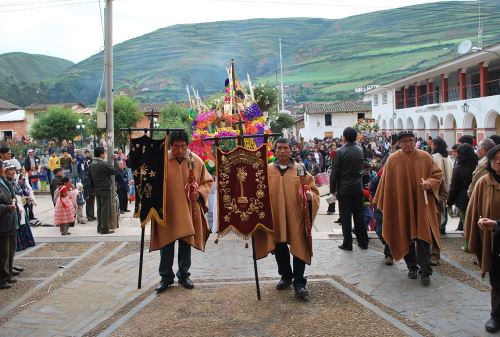The United Nations Educational, Scientific and Cultural Organization (UNESCO) has decided to include the Traditional System of Corongo's Water Judges in the Representative List of the Intangible Cultural Heritage of Humanity.

According to Peru's Ministry of Culture, the decision was made by the Intergovernmental Committee for the Safeguarding of Intangible Cultural Heritage at its 12th session in Jeju Island, Republic of Korea.
The event was attended by a Peruvian delegation composed of Associate Researcher at Culture Ministry's Directorate of Intangible Heritage Miguel Angel Hernandez, the initiative's promoter and Corongo citizen Jorge Trevejo, as well as Corongo's Water Judges Fernando Diaz and Jose Moreno.
The technical file was submitted by the Ministry of Culture in 2015, following joint efforts by the Directorate of Intangible Heritage and the Corongo community in Ancash region.
In December 2013, the Traditional System of Corongo's Water Judges was declared National Cultural Heritage by Peru's Executive Power.
The System
The Traditional System of Corongo's Water Judges is an organizational method developed by the people of the district of Corongo in Northern Peru, embracing water management and historical memory.
The system —which dates back to pre-Inca times— is primarily aimed at supplying water fairly and sustainably, which translates into proper land stewardship, thereby ensuring the existence of these two resources for future generations.
The people of Corongo are the main bearers of the element since the system regulates their agricultural tasks, and the highest authority is the water judge, whose role is to manage water and organize the main festivities in Corongo.
The element is the pillar of Corongo's memory and cultural identity. Likewise, it complies with the fundamental principles of solidarity, equity and respect for nature.
Its functions, significance and value are transmitted to younger generations within the family and public spheres, and emblematic dances of the city, linked to the system, are taught at all school levels.
The relationship between St Peter and water, and hence prosperity and wellbeing, is one of the main values passed on; children learn about devotion to the patron saint either by participating in religious celebrations or through the oral tradition.
(END) NDP/MAO/RMB/MVB
Published: 12/7/2017